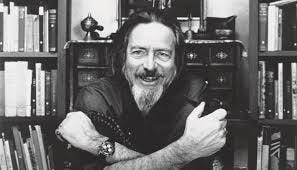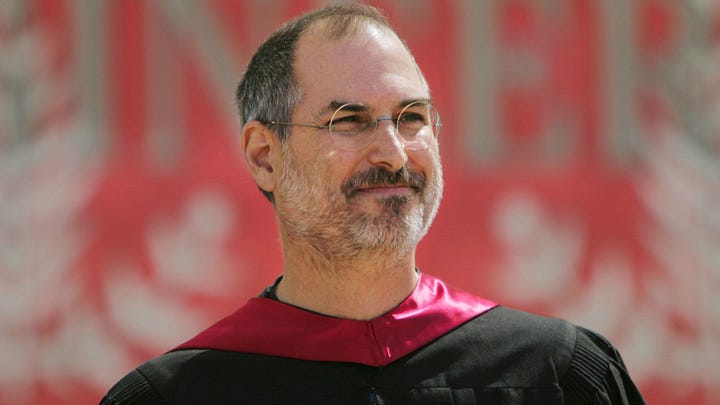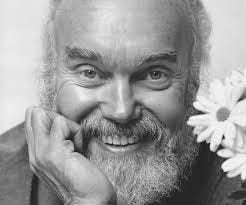The Setup:
Perhaps like many “out there,” I invite into my life moments that allow for intentional reflection, contemplation, meditation, and devotion. To aid this practice, in addition to the poetry and sacred/spiritual books I read, and in addition to the lessons I learn from my natural surroundings, I subscribe to a few organizations that send brief, pithy teachings from sages, mystics, and teachers. I expect these teachings to reveal profound, even universal, truths and over the course of my study, I’ve discovered that there are, indeed, Universal teachings that transcend all spiritual traditions or religious dogmas. So I tend never to question them but accept them at face value and reflect upon how that teaching may apply to my own life. And then I go on to the rest of my day. It’s become a “depth practice;” a time to slip out of linear time to see how the moments of life, each “Now,” can carry with it its own rich divinity through intentional pauses of reflection, quiet, and Presence.
“Spirituality and Practice” is one of those excellent organizations. They combine a brief teaching with a suggested practice to further cement the teaching into one’s life. Sometimes I follow their practice suggestions, sometimes I create my own.
This one, however, landed differently for me. I want to share it with you first so you can see how it lands for you:
Landings on Imperfection
At first read, this was a practice centering on gratitude: “Be more appreciative of the mistakes in life.” Well, it still is despite my further readings. It’s a prompting to go deeper into the practice of gratitude to where it matters most—when things are not meeting your “ideal” or expectation of perfection. We know it’s easy to have gratitude for the unicorns, and rainbows, and sprinkles in life, for all our blessings. Harder it is to have gratitude for the mud, the uncomfortable, and the imperfect.
This teaching met up hard against a different teaching/practice that I’ve really been trying to fully integrate into my life. “Trying” is a bit misleading because it implies strong effort to attain something. And that’s not what I mean when I say “I’ve really been trying.” Rather, in following Lao Tzu’s teachings from the Tao Te Ching, especially on the practice of wu wei, the practice of “not trying,” there has been no hard striving to “fit” these teachings into my existence. Instead, there is a simple and quiet allowance. So, my practice has been to understand how it is that “the things in life don’t happen to me, they happen for me” is one of the Ultimate Truths.
This other practice weaves through many of the sages and mystics that I read and hold in high regard; but four come to mind first for various reasons, following the S&P thought to look for imperfections:
Alan Watts
Alan Watts taught “there is not a single speck of dust out of place in the entire world.” The way we know this to be true is because of the fact that is actually what we see and directly experience. In other words, this is what reality is. Reality is the totality of everything that can be experienced exactly as it is. Humans get into trouble when we try to impose a judgment upon reality—judgements like good or bad, bright or dark, happy or sad, perfect or imperfect. Judgments and desires, by definition, remove us from the deeper appreciation or gratitude for accepting life just as it is. This is, also why this one teaching is often described as THE highest spiritual practice one can have: accepting reality just as it is. Period.
In practicing wu wei, I’ve really been falling into an allowance of a deeper understanding of how everything can be, nay, is, in its place even when things seem 100%, completely and absolutely, out of place. But for the record, accepting that everything is in its exact place has eliminated significant suffering in my life. It’s a humbling practice that asks “what right do I have to want anything to be different? Who gave me the keys to the Universe such that my wishes are the only wishes that should exist? Who made me god?”
Fact is, reality IS. No one can wish it away. Doing so causes suffering. So, “reality IS”, if a judgement needs to be applied, can only be said to be “exactly in its place.” In other words, perfect.
Wait…Trump is our President? Elon Musk our unelected co-president?
THAT’s PERFECT???
Eckhart Tolle
Synchronistically, the other day, as I’m rereading “A New Earth: Awakening to Your Life’s Purpose” by Eckhart Tolle, I came across the following passages:
“Nothing can satisfy the ego for long. As long as it runs your life, there are two ways of being unhappy. Not getting what you want is one. Getting what you want is the other.” (p. 207)
“Whatever is or happens [ie reality], is the form that the Now takes. As long as you resist it internally, form, that is to say, the world, is an impenetrable barrier that separates you from who you are beyond form, separates you from the formless one Life that you are.” (p. 208)
“When you react against the form that Life takes at this moment [ie reality], when you treat the Now as a means, and obstacle, or an enemy, you strengthen your own form identity, the ego. Hence the ego’s reactivity. What is reactivity? Becoming addicted to reaction. The more reactive you are, the more entangled you become with form. The more identified with form, the stronger the ego. Your Being then does not shine through form anymore—or barely.” (p. 208)
“The many things that happen, the many forms that life takes on, are of an ephemeral nature. They are fleeting. Things, bodies and egos, events, situations, thoughts, emotions, desires, ambitions, fears, drama . . . they come, pretend to be all-important, and before you know it they are gone, dissolved into the no-thingness out of which they came.” (p. 209)
“People believe themselves to be dependent on what happens for their happiness, that is to say, dependent on form. They don’t realize that what happens is the most unstable thing in the universe. It changes constantly. They look upon the present moment as either marred by something that has happened and shouldn’t have or as deficient because of something that has not happened but should have. And so they miss the deeper perfection that is inherent in life itself, a perfection that is always already here, that lies beyond what is happening or not happening, beyond form. [emphasis mine] Accept the present moment and find the perfection that is deeper than any form and untouched by time.” (p. 214)
These words gave me a deeper appreciation for why this practice is “the whole ballgame” when it comes to spiritual development. Accepting the present moment for exactly what it is IS the entirety of spiritual growth.
Steve Jobs
In 2005, Steve Jobs, cofounder of Apple, gave a consequential commencement address to the graduating class at Stanford University. Over the years, it’s become quite famous. In it, Jobs shared a perspective that I’ve come to place high value on, and trust in, especially as I contemplate the context of everything written above as it pertains to my experience of life—especially the experience I’m tempted to judge as “dark, muddy, uncomfortable, and imperfect,” in other words, the experiences I wish were different from what they are. Jobs’ teaching pulled from the address offers a perspective that can only be defined as faith. It’s about connecting dots:
[You] can’t connect the dots looking forward; you can only connect them looking backward. So you have to trust that the dots will somehow connect in your future. You have to trust in something — your gut, destiny, life, karma, whatever. This approach has never let me down, and it has made all the difference in my life.
~ Steve Jobs
When I take as Truth what Alan Watts and Eckhart Tolle teach, that everything that is happening is perfectly in its place, then I need something to attach to in order to more fully understand how even the “bad” or “imperfect” things of my life are happening for me, not to me; that they, too, are perfect. Being an imperfect human (still), and knowing my spiritual development is dependent upon non-judgment and acceptance, I have to trust, or have faith, that things like the deaths in our lives (parents, pets, friends, other loved ones), the misfortunes (job loss, disasters, trauma), and events (presidential election outcomes and the destruction of our constitutional democracy), all are perfectly placed by the Universe—all are perfect as they are, and all are happening for my benefit. The dots will connect—I have faith in life and karma. I simply need to be patient: Jobs reminds us we cannot connect the dots “looking forward.”
Every misfortune in my life, every single one, every dot, I’ve connected to the greater whole that is my life. I know this because this is who I am—I’ve become “me” because of every single dot has connected the reality that the Universe placed in my life. Take any one dot away, and I’m no longer me.
Ram Dass
One of THE most important teachings in my life comes from Ram Dass: “Everywhere you look, you see what you are looking for. When you look for god, everywhere you look, you see god.”
I’m constantly looking with intention now. Because he’s right. This, too, is a high spiritual practice.
‘Nuff said on that.




Back to Imperfections
So that quote above by the folks at Spirituality and Practice. They, or rather Gregory F. A. Pierce, implores us to “look for imperfections.” I want to take away “the arts or sporting event” condition—because the entirety of life is its own art and/or sporting event. To apply this teaching singularly to art or sports misses the fact that art and sports are inseparable from life and life is inseparable from art and sports—he could have easily just have said “each time you look at life, look for one imperfection.”
Whereas a long time ago I would not have batted an eye at this direction (especially knowing that errors and fouls exist in sports, and even the great sculptors from antiquity (eg Michealangelo) even made “mistakes” in stone), I have a deeper knowing now that imperfections don’t exist in reality.
That I picked up on this immediately I took as a good sign—that my practice is deepening. I don’t want to look for imperfections because I’ll find them. But paradoxically, in the mere act of acknowledging their existence, I’m acknowledging an existence of something that really doesn’t exist—hence, the existence of an illusion. If I haven’t yet been able to understand the innate and inherent perfection of everything that comprises a present moment, it’s because I haven’t yet had the time to connect the dots. But I have faith I will.
I have faith all dots connect.
Which brings me back to gratitude
Despite my quibbles with imperfection in the S&P quote, the practice of gratitude they suggest is in itself among the highest spiritual teachings—and the secret to living a life of happiness.
We still have saints that live among us. One of them is Brother David Steindle-Rast.
“Everything is a gift.” To live otherwise is to live an impoverished life. To live otherwise is to acknowledge the existence of imperfection. To live otherwise is to see that Life, the Universe, Tao, God…, makes mistakes. To live otherwise is to believe things can be out of place, that I can have what I want at the expense of someone or something else, and that the world should revolve around me.
There are NO mistakes in life (sorry “just for men;” there goes your entire marketing scheme”)
True gratefulness, not relegating it to the inauthenticity of spiritual materialism, is in the knowing that EVERYTHING is a gift. Brother David teaches this is what it means to be happy—living a joyful life is the natural outcome, the result, of living a life of gratefulness.
Brother David Steindl-Rast is 98 years old. He must be on to something.
Special Note:
Absolutely NONE of this spiritual work is meant to imply a passive acceptance of current events especially if those current events are damaging, destructive, causing pain and division, or are ethically and morally abhorrent. Rather, a deepening of this work grounds one into a knowing that when actions “for or against” need to happen, they come from a deeper, karmic place of Universal Truth and that they can be accomplished through the promotion of compassion, unity, justice, and healing. It’s no accident that some of antiquity’s greatest social justice activists were spiritual/religious mystics and leaders. Each always striving toward “a more perfect union.”
Those gifts cause greater gifts to surface.
Always and Ubuntu,
~ k
🙏🏼
A New Earth: Awakening to Your Life’s Purpose by Eckhart Tolle
“Everywhere you look, you see what you are looking for.” ~ Ram Dass
“The Universe does not make mistakes.” ~ Alan Watts
“Stanford Commencement Address by Steve Jobs.”
“A Good Day” by Brother David Steindl-Rast














I saw a Note on Substack recently where the writer said that the "typo" would be his new status symbol. The status of imperfection, or HUMANITY. (I believe he also wrote that it would be his way of knowing that something wasn't AI-generated).
Nice reflections, Kert! 🙏💚
Me n ALAN WATTS go way back..... and being a 50s baby its impossible to escape RAM DASS. All this was riteous SOUL FOOD.